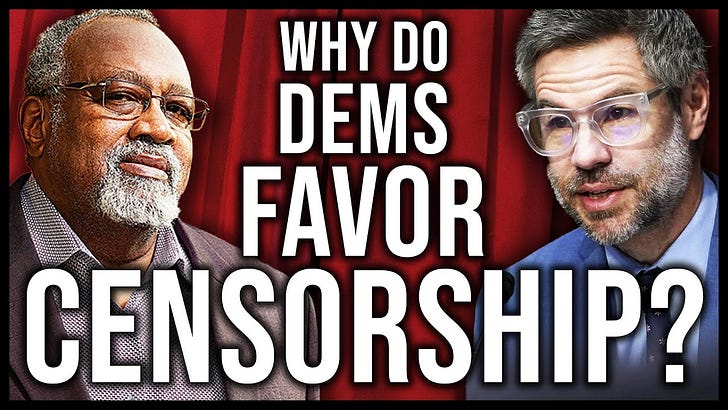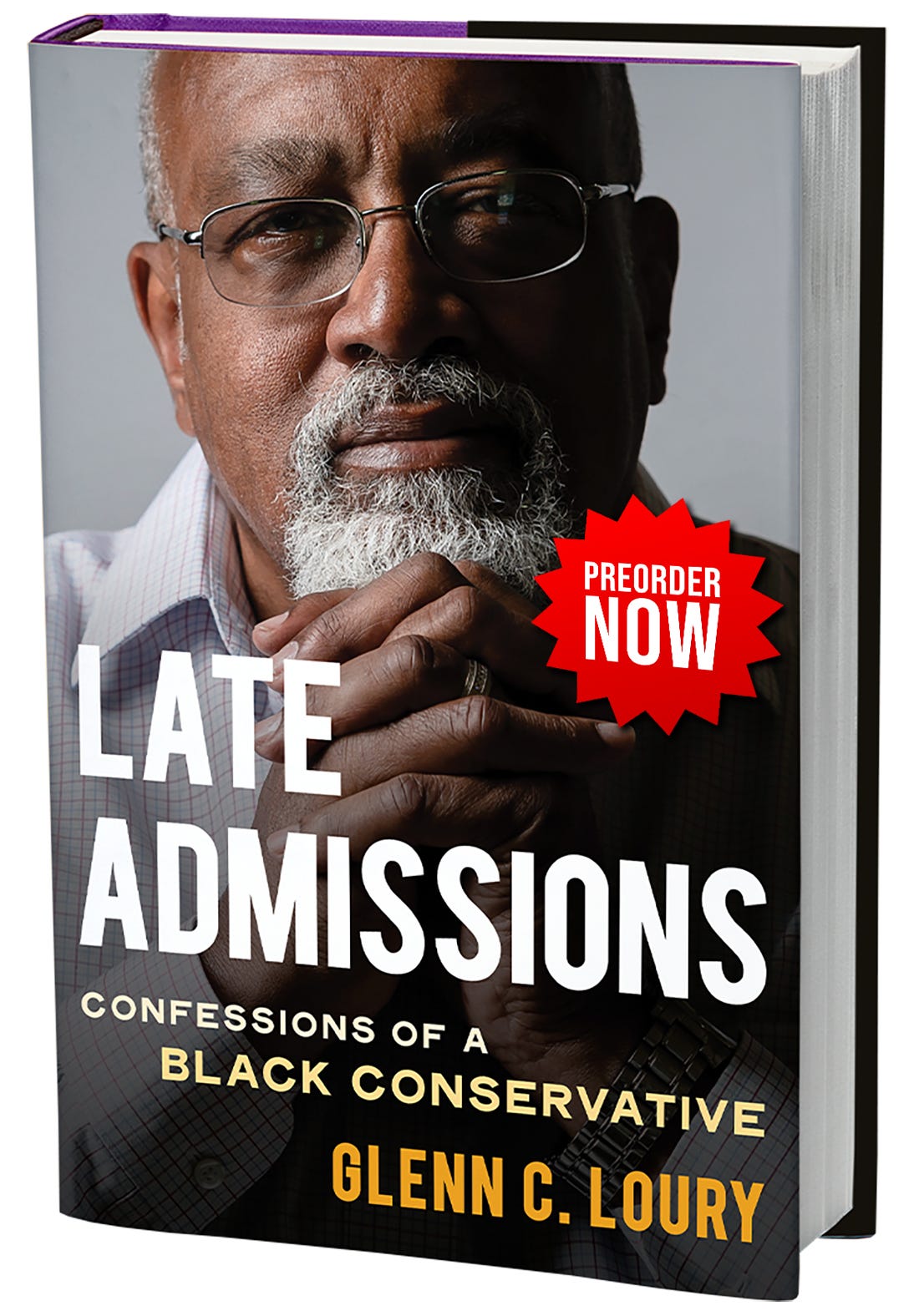Maybe my least surprising political position is advocacy for free and open discourse. Without free speech as a bedrock principle, democracy would mean little. If we can’t, as private citizens, receive, judge, and debate ideas and information, the decisions we make on the basis of that information cannot themselves be considered “free” in any meaningful sense. If some central authority prevents me from discussing information—or even the possibility of the existence of information—that could change people’s minds about that authority’s course of action, all of our rights have been damaged.
But over the last five years, a whole raft of ideas potentially threatening to dominant media and government narratives have found themselves shut out of “legitimate” discourse. Having concerns about the side effects of COVID vaccines, advocacy for the chosen presidential candidate of the Republican Party, and opposition to funding Ukraine would seem, in another time, like normal positions any person in the US could hold. And yet many legacy media outlets treat those positions as anywhere from delusional to treasonous. Such positions are often labeled as sources of “misinformation,” dangerous ideas to which, we’re told, ordinary First Amendment protections may not apply.
In an age when almost all of us rely, to some degree, on web-based platforms for our information, the line between government censorship and platform terms of service can seem vanishingly thin. In fact, in this week’s episode, the journalist Michael Shellenberger suggests the line may not exist at all. In this clip, he draws my attention to a startling poll that finds a huge increase in the number of Democratic or Democratic-leaning voters who want to see the government censor “misinformation” online. But who decides what counts as misinformation? When platforms seek government guidance on that definition, we have good reason to ask whether the apparent freedom they offer is government censorship by another name.
This is a clip from the episode that went out to paying subscribers on Monday. To get access to the full episode, as well as an ad-free podcast feed, Q&As, and other exclusive content and benefits, click below.
GLENN LOURY: Climate alarmism. San Fransicko, which is dealing with homelessness a lot and the pathological character of the response of the institutions to the fact of homelessness and neurotics getting control of the helm here and running us aground. And you [ask], what's behind it.
I had a thought. My thought is, whereas you decry the alarmism of the climate alarmists, a person might say there's a kind of alarmism in your diagnosis. We're in pretty bad shape if you're right, and I'm not sure exactly what you're recommending be done about it. There is perhaps a somewhat exaggerated sense of doom that I detect.
MICHAEL SHELLENBERGER: I hope you're right. I hope I'm an alarmist. I mean, yeah, I think there's a really reasonable question around how bad is the situation. To give you one number, the percentage of Democrats who want the government involved in censoring so-called misinformation online rose from 40 percent in 2018 to 70 percent last year. That's a huge increase of support for censorship. People mostly don't change their mind about anything. Or if you do change your mind, it happens very slowly from your twenties to your fifties over generations. So to see Democrats support censorship in those numbers ...
I'm a Gen Xer. I was born in '71, grew up in the ‘80s and ‘90s. We had “Question Authority” bumper stickers, as lefties, on our cars. Our parents told us about Skokie. In 1977, the Supreme Court said neo-Nazis could march through neighborhoods, not just where Jewish Americans lived, but Holocaust survivors.
Now we have a situation where most Democrats want the government involved in censoring so-called misinformation on social media platforms like Facebook and Twitter, now X. That for me is absolutely terrifying because of the First Amendment.
I have a theory about that. I am an amateur in this realm, but I have a theory. And my theory is that the demos has moved right, and the mainstream, credentializing, information-producing institutions have become discredited. And so a lot of the subversive action—people who were vaccine hesitant or who might think Trump is not the worst thing in the world—is expressing itself in these off-mainstream platforms, which the left wants to regulate. That's why “Elon Musk is a bad guy” and the need to control the Russia collusion hoax and all of that. I'm talking to a “Twitter Files” guy. You should be telling me.
But my theory is, because of the changing character of the interrelationship between political partisanship on the one hand and the media of the distribution of information, control over what happens at the internet platforms is where the left is fighting its rear-guard action. Something like that.
Yeah, I think that's basically right. I think that, between 2017 and today, the establishment has said that Donald Trump is going to be a dictator, is threatening democracy, and the only reason people support him is because A, people are racist, sexist, transphobic, you name it, and B, victims of misinformation. And in order to save our democracy, we need to have more censorship, and the government needs to be involved in that.
But this is a very un-American idea. I'm not a First Amendment scholar. I'm a real amateur. I'm really learning it for the first time. But what's so striking about it is that the founders of this country, they did not think that free speech was some right that was given to you by the government. In Europe, the king decided the acceptable bounds, and you could petition the king and the king would maybe say, “Okay, you can have a conversation about those things.”
That wasn't how the people that came to this country imagined it. They thought that free speech was an inalienable right. It was a fundamental human right. It was not something that was given to us by the government. Many people didn't want to have a country. They opposed unifying the colonies unless they knew ... and the First Amendment was a sop to the people who had concerns about too much state power. The First Amendment was a way of saying, look, you can say what you want to say. It's not up to the government. The king doesn't decide. There is no king. The president's not going to decide. The courts aren't going to decide what you can say. It's a fundamental human right.
And that has been the view. It really got tested a bit when the Nazis wanted to march through neighborhoods of Holocaust survivors. You go, geez, how far do we take this? We have very few limits on it. We don't let people lie in order to steal your money. That's considered fraud. We don't let people lie to just absolutely destroy you financially. That's considered defamation. You can't lie in order to commit acts of violence immediately.
In other words, the Nazis can march through Skokie, but they can't say, “Burn that house down” or “Kill those people.” That's illegal. I can't threaten you with death. You can't use words to organize violence. But beyond that, you can actually say that America should be a communist country or America should be a fascist country. You are allowed to propose the end of the United States of America. You're allowed to do that under our constitution. So to have people saying we need to have the government involved in deciding what's true or not on social media is so radical.






Glenn, your introductory summation nails it. I've never in my life seen such a concerted effort to do end-runs around the first amendment by making up terms like 'misinformation, 'disinformation' and 'hate speech', and then pretending that these are somehow NOT protected by the first amendment. In fact, the first amendment is precisely INTENDED to protect such speech.
This is just getting started, and you better be prepared.
With 42 out of 50 states not requiring photo ID to vote and 70% of votes cast by mail, the Leftwaffe is on a roll.
Look to Scotland's "Hate Speech" and America's "Covid Misinformation" rules for the future of all this.